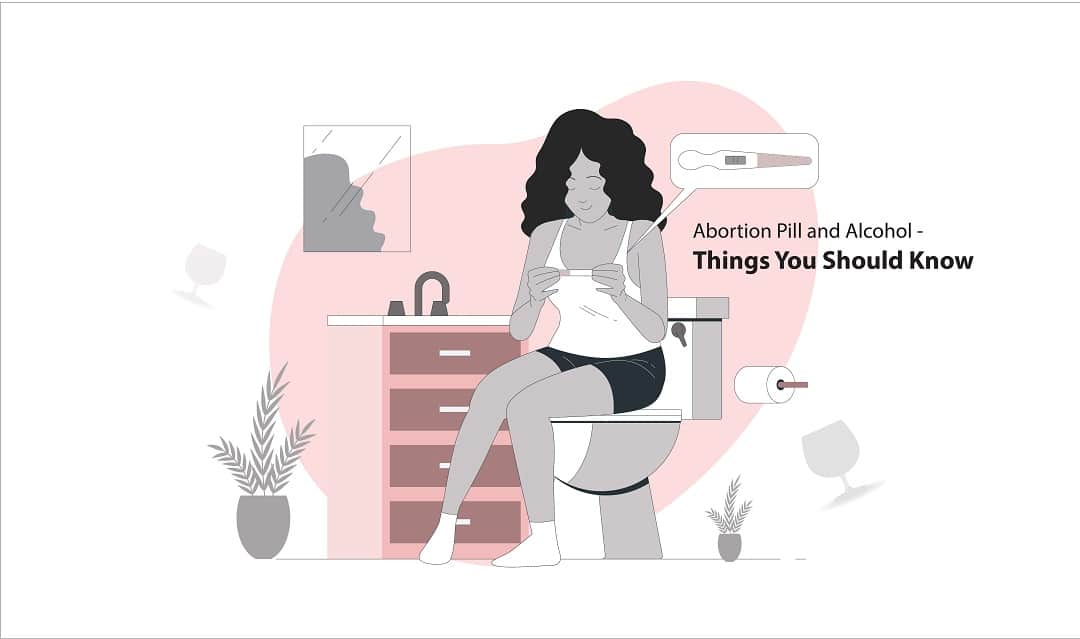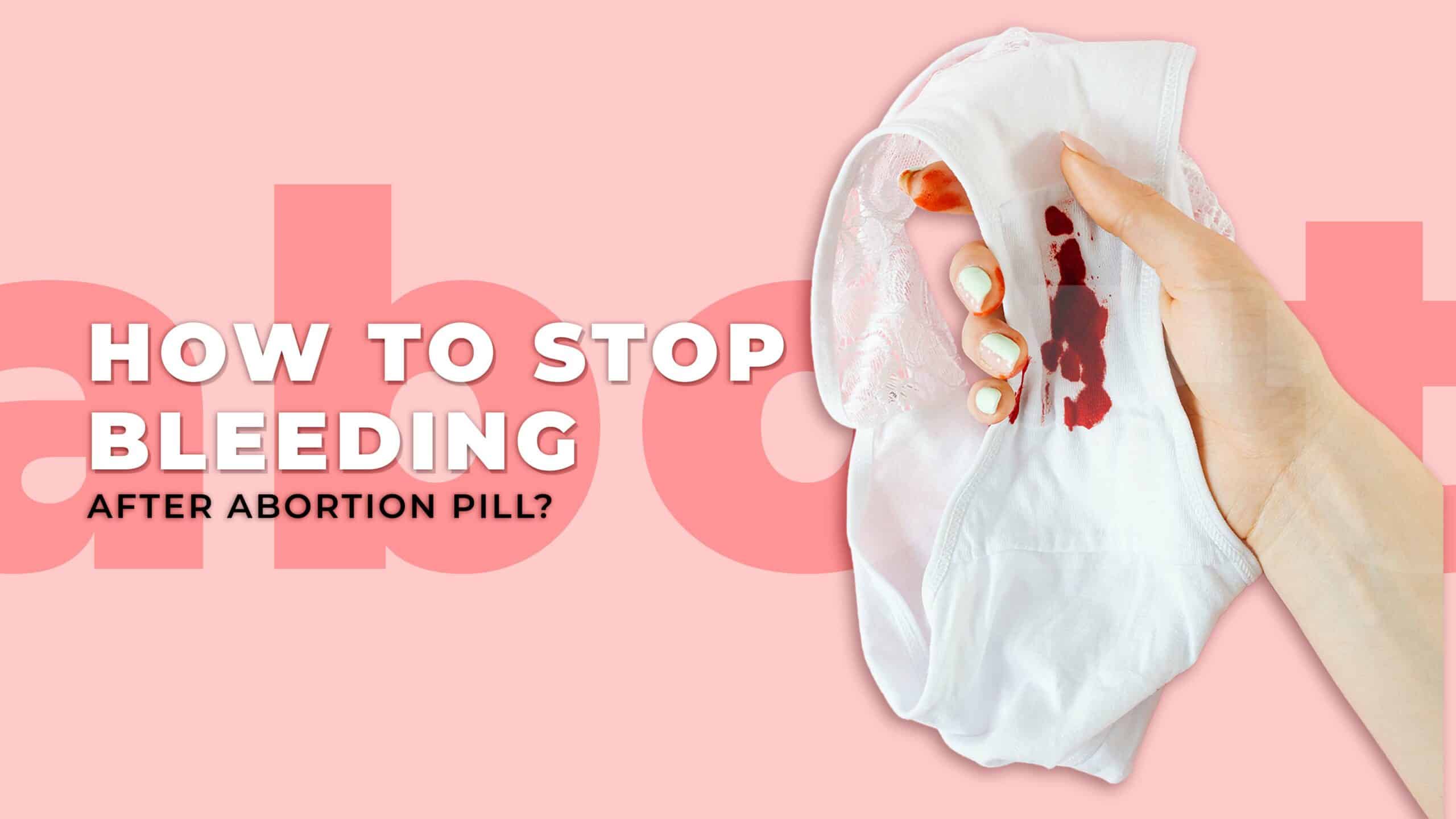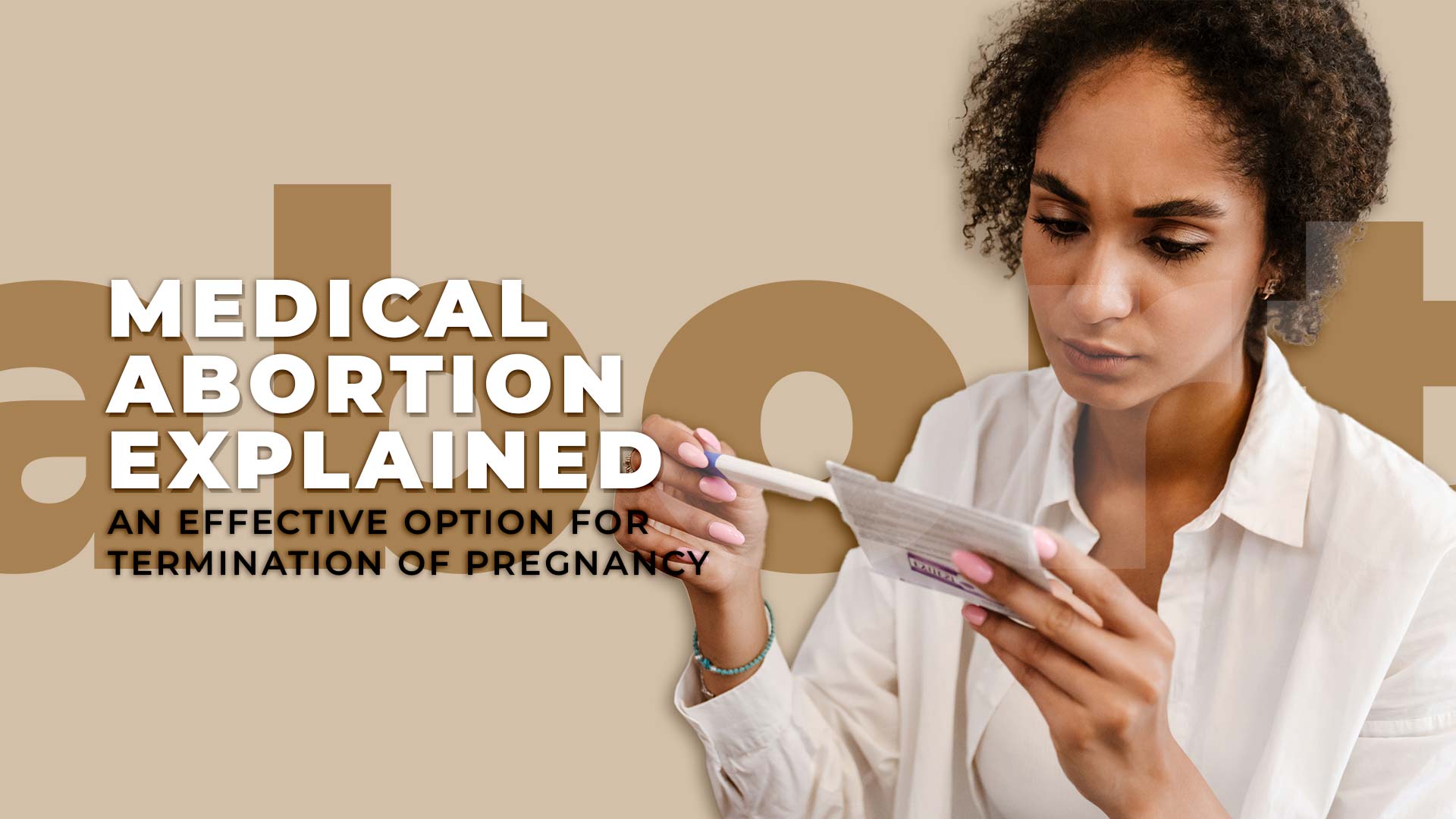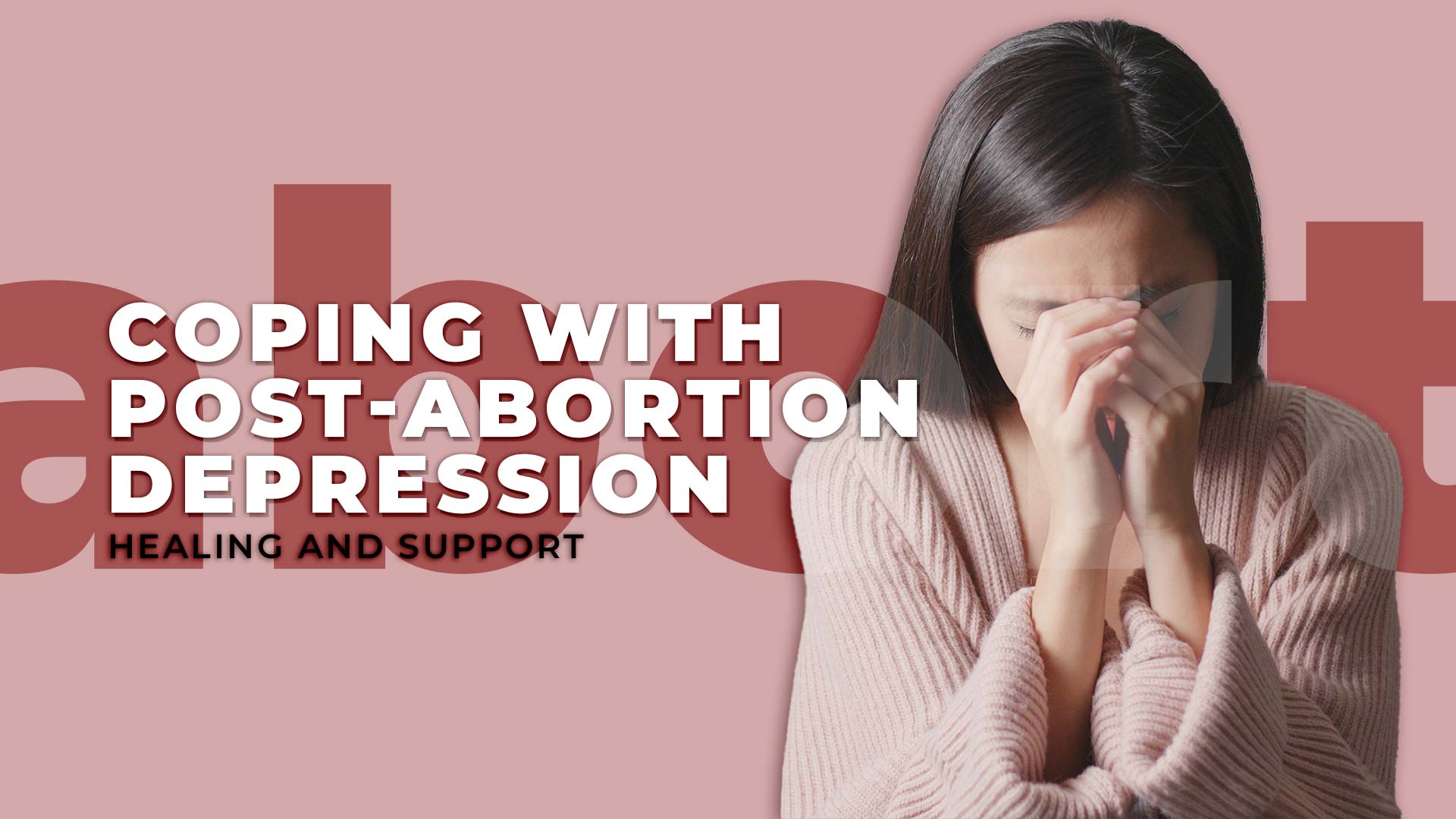Medical abortion is the technique to terminate a pregnancy within the first 10 weeks, using a combination of two medications. The procedure resembles that of a miscarriage where the fetal tissue is passed out through the vaginal tract. The care and prevention during the recovery period are of utmost importance. Abortion pill and alcohol consumption is something you need to be cautious about. Before finding out how alcoholic drinks may affect your pregnancy, let us discuss how abortion takes place.
Abortion Pills – What Are They & How Do They Work?

Abortion by consuming pills is a safe and effective method of terminating a pregnancy that can be achieved at the comfort of your home.[2] The abortion pills come in the form of a kit, like an MTP kit, that contains one pill of Mifepristone, and four tablets of Misoprostol. However, before taking them your doctor will schedule an appointment to conduct the necessary examination to check the duration of your pregnancy and confirm the presence of vaginal pregnancy. Abortion pills cannot be administered for an ectopic pregnancy i.e. pregnancy outside the uterus.
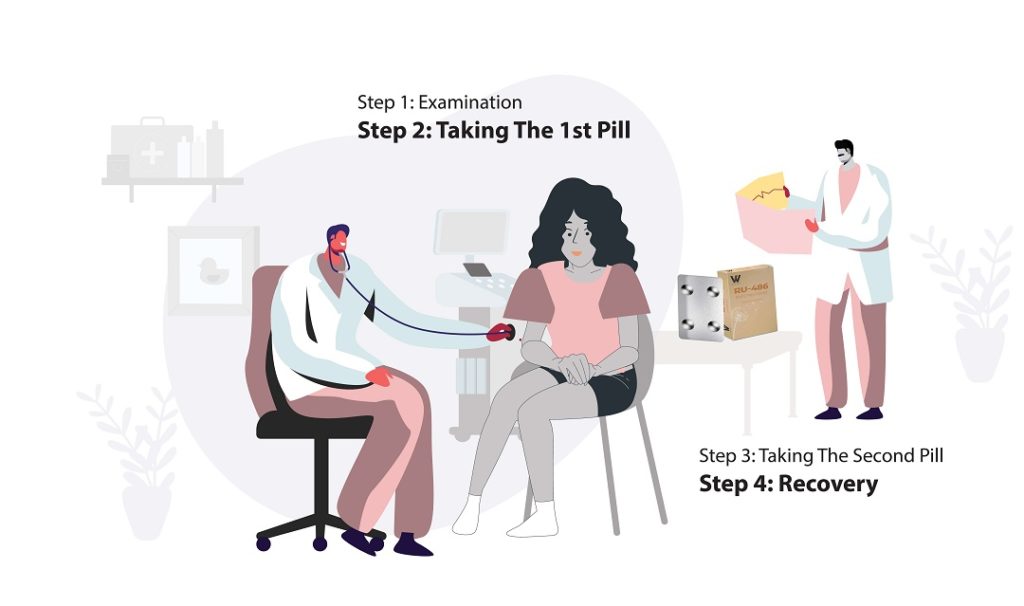
Step 1: Examination
The doctor will perform some blood tests and physical examination along with an ultrasound to decide if medication abortion would make a suitable choice for you.
Step 2: Taking The 1st Pill
Mifepristone is administered first, and usually at the clinic under the supervision of a medical professional. Some clinics provide it to the patients to take home and consume. Mifepristone 200 mg or RU-486 is an anti-progestational steroid that works to seize the action of progesterone and facilitates uterine contractions.
- The hormone progesterone promotes the growth of the endometrial lining which supports the growth of the fetus.
- Mifepristone stops the further growth of pregnancy by detaching the endometrial lining from the uterine wall.
Step 3: Taking The Second Pill
The second dosage comprises four tablets of Misoprostol that can be administered orally or vaginally after 24-48 hours. The exact time will be advised by the doctor. Four oral-use tablets of Cytotec 200 mcg should be placed in the buccal cavity (space between the cheeks and the gums) of the mouth and left to be slowly absorbed by the membrane. For vaginal use, four tablets that contain Misoprostol as the active ingredient, are inserted into the vagina that gets absorbed gradually by the vaginal membrane.
- Misoprostol is a synthetic prostaglandin analog which when used along with Mifepristone escalates uterine contractions.
- The contractions, in turn, help with the removal of the uterine contents.
- Heavy bleeding and cramping, more than the normal period, occurs within 1-6 hours of use of these tablets, and the period-like bleeding may continue up to 2 weeks.
Note: In case the bleeding does not start within 24 hours after consuming the Misoprostol, call your consulting doctor.
Step 4: Recovery
The doctor will provide you with antibiotics and painkillers to prevent the development of any infection and manage the pain, respectively. There are some prevention tips you need to follow to eliminate the chances of any complications:[3]
- Do not insert anything in your vagina for at least two weeks to avoid the development of an infection, which involves avoiding vaginal intercourse.
- Use sanitary pads in place of tampons for at least two weeks.
- In case you plan on getting intimate, discuss the options for birth control with your doctor as your menstrual cycle will take some time to return to normal. Therefore, your chances of getting pregnant are high after an abortion.
Following side effects are usually observed in women that do not require medical attention:
- Pain from strong uterine cramps
- Heavy bleeding, more than the normal periods.
- Nausea & vomiting
- Diarrhea
- Fatigue
Very rarely, some cases may experience the following complications:
- Extremely heavy bleeding – soaking two large pads within an hour for more than two continuous hours.
- Infection – foul-smelling discharge from the vagina, fever, and pain are the tell-tale symptoms of a developed infection.
- Incomplete removal of fetal tissue – if in case the pregnancy tissue is not removed properly from the uterus, further treatment would be required to remove the remaining contents, which involves a surgical procedure.
- Continued Pregnancy – In case the medications do not work, which is very rare, you may have to undergo a surgical procedure to end the pregnancy. The medications may impair the growing fetus. Therefore, it is recommended to abort the pregnancy with help of a surgical procedure.
A follow-up appointment is usually scheduled within 1-3 weeks afterward, to confirm the end of pregnancy by physical examination, an ultrasound screening, and/or lab tests. However, in case you feel any concern regarding the symptoms you experience, you should seek immediate help.
MTP Kit or Plan B?

Well, many people get confused with these terms. To clarify, these two are completely different products. Plan B, also known as the morning-after pill or emergency contraceptive pill, prevents pregnancy from happening, whereas the MTP kit stops the pregnancy that has already been established from growing further and also removes the fetal tissue from the uterus.
So the generally asked question is – will alcohol affect Plan B? Well, it will not impact the effectiveness of emergency contraceptives. However, the rate of intoxication speeds up and the side effects of morning-after pills such as nausea, dizziness, weakness, and headache, will be felt more pronounced.
Can you drink alcohol after taking plan B? Yes, you can, as it won’t have any serious impact on the action of the pills. But they may accentuate the effects you may feel because of the pills.
Can You Drink After An Abortion?

Alcohol is known to interact with many medications,[1] and as the abortion procedure uses some strong medications, it may result in unfavorable effects. Alcohol can directly or indirectly interfere with the effects of the drugs you are taking and hinder your smooth recovery.
- Alcohol can intervene with your sleep cycle and cause unrest. You need sufficient rest to recover properly.
- A nutritionally balanced diet is mandatory for your body to heal properly, and alcohol is known to interfere with the absorption of essential vitamins, minerals, and nutritional needs from your food.
- Alcoholic drinks also elevate blood sugar levels.
Mifepristone/Mifeprex & Alcohol
The drug Mifepristone has some side effects that can overlap with those of the alcohol, and result in heightened effects such as dizziness.
- Drinking alcohol along with antibiotics can hinder their effectiveness.
Misoprostol & Alcohol
Alcohol may intensify the uterine bleeding caused by Misoprostol. Therefore, it is advised to avoid alcohol for at least 48 hours after the abortion.
Antibiotics & Alcohol
Consuming alcohol when you’re on an antibiotic course may result in flushing, rapid heart rate, headache, nausea, and vomiting. It may also intensify some effects of antibiotics and cause dizziness, unrest, and sedative-like effects. Experts advise avoiding alcoholic beverages for 72 hours after the consumption of antibiotics.
Does Drinking Before An Abortion Affect You?
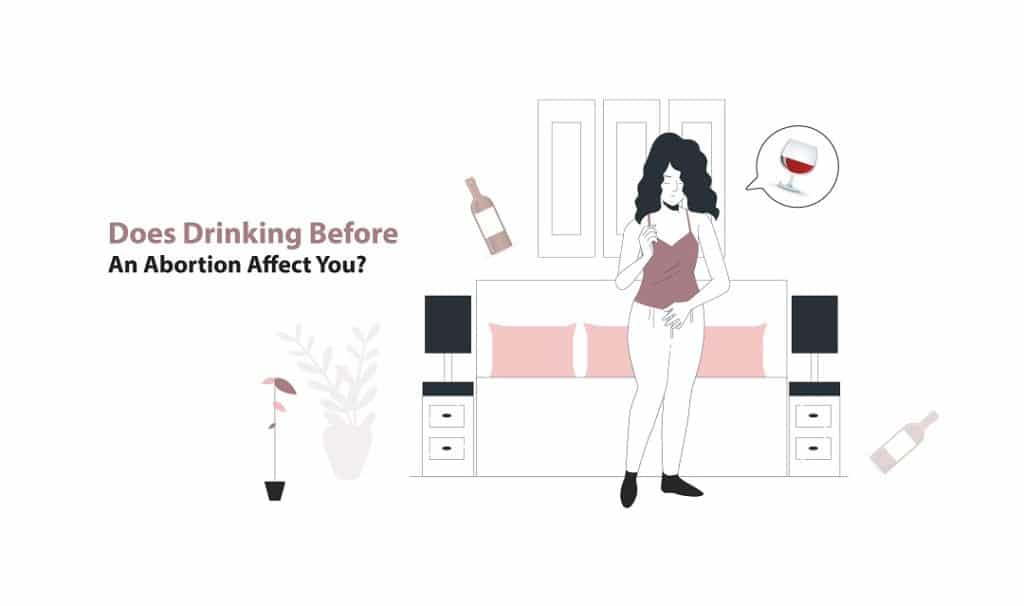
The medicine experts recommend not to use alcohol 48 hours before your appointment for an abortion. This is because the clearance of alcohol from your body, depending on certain factors, may take up to 48 hours. As already established, the presence of alcohol in your body may exaggerate the effects of abortion medications.
How Long After A Medical Abortion Can You Drink Alcohol?
Experts advise waiting for at least 48-72 hours before consuming the alcohol after abortion, as it may exacerbate the effects of medications you are taking for pain management and prevention of infection.
Takeaway
When it comes to the abortion pill and alcohol, it is generally advised to avoid alcohol consumption while undergoing a medical abortion. Combining alcohol with the abortion pill can potentially increase the risk of side effects and complications. Alcohol can interact with medications, impair judgment, and affect overall well-being. Follow the instructions provided by your healthcare professional and consult with them for personalized advice. They will provide you with accurate information, address any concerns or questions you may have, and ensure your safety and well-being throughout the process.
References
- Weathermon R, Crabb DW. Alcohol and medication interactions. Alcohol Res Health. 1999;23(1):40-54. PMID: 10890797; PMCID: PMC6761694. https://www.ncbi.nlm.nih.gov/pmc/articles/PMC6761694/
- Gatter M, Cleland K, Nucatola DL. Efficacy and safety of medical abortion using mifepristone and buccal misoprostol through 63 days. Contraception. 2015 Apr;91(4):269-73. DOI: 10.1016/j.contraception.2015.01.005
- FAQ: Post-Abortion Care and Recovery https://www.ucsfhealth.org/education/faq-post-abortion-care-and-recovery

